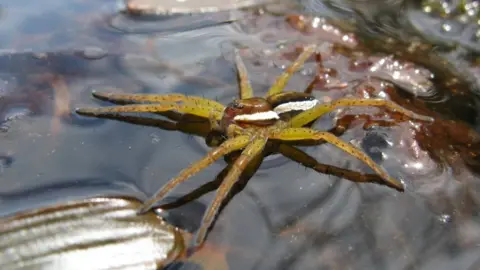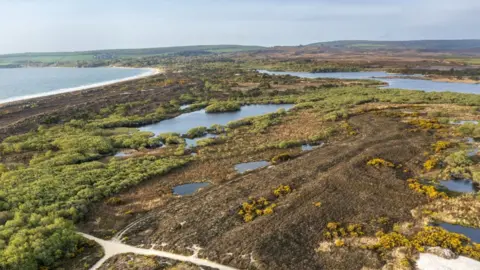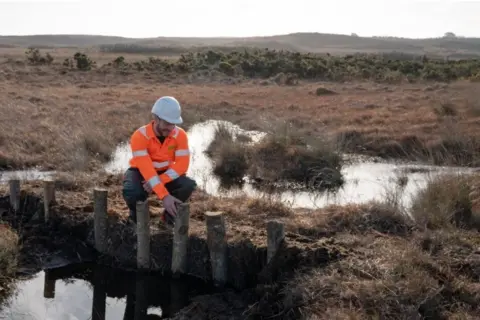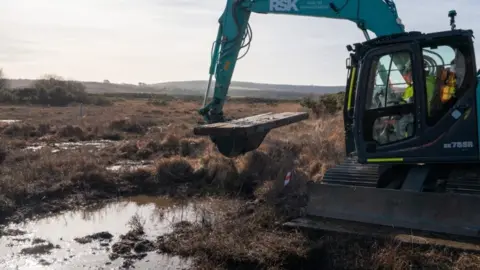Rare species set to benefit from £1m Dorset peatland restoration
 National Trust / Richard Allen
National Trust / Richard AllenWork to restore peatland at a nature reserve will benefit rare species, store carbon and help prevent floods and fires, the National Trust said.
"Leaky dams" are being created to re-wet Agglestone Mire and Greenlands Mire, near Studland, Dorset, in the first phase of a £1m project.
It is hoped the improved habitats will help species such as bog hoverflies, raft spiders, skylarks and nightjars.
The peatland is one of 16 being restored by Dorset Peat Partnership.
About 172 hectares (425 acres), equivalent to 240 football pitches, will eventually be reinstated.
 National Trust / John Miller
National Trust / John MillerHeather bales, timber and bunds made of peaty soil are being used to partially block old ditches, originally dug to drain marshes for conifer plantations and grazing animals.
National Trust's lead ecologist in Purbeck, David Brown, said: "Spreading the flow of water across the mires will create a wetter habitat where mosses and rare plants like marsh saxifrage and tiny bog orchids can thrive.
"Under the acidic, waterlogged conditions, mosses and other plants never fully decompose, and over time they turn into new peat, which keeps their carbon locked up instead of releasing it into the atmosphere."
 Sophie Bolesworth
Sophie BolesworthThe work is also aimed at improving drought and fire resilience by holding water in the landscape during summer and help prevent flooding by soaking up rainfall.
Mr Brown said a new wetland ecosystem would establish itself "quite quickly", providing a home for under-threat species.
The expected increase in insects will also benefit carnivorous plants, such as the Godlingston Sundew, named after Godlingston Heath, where it was first found.
 Sophie Bolesworth
Sophie BolesworthThe area forms part of England's first "super" National Nature Reserve, which was designated in 2020.
Dorset Peat Partnership is being led by Dorset Wildlife Trust and involves Natural England, Forestry England, the Environment Agency, BCP Council, the National Trust, RSPB and one private landowner.
It is being funded by £787,320 from Defra's Nature for Climate Peatland Grant Scheme (NCPGS), and £262,500 from other partners.

Follow BBC South on Facebook, X, or Instagram. Send your story ideas to [email protected] or via WhatsApp on 0808 100 2240.
